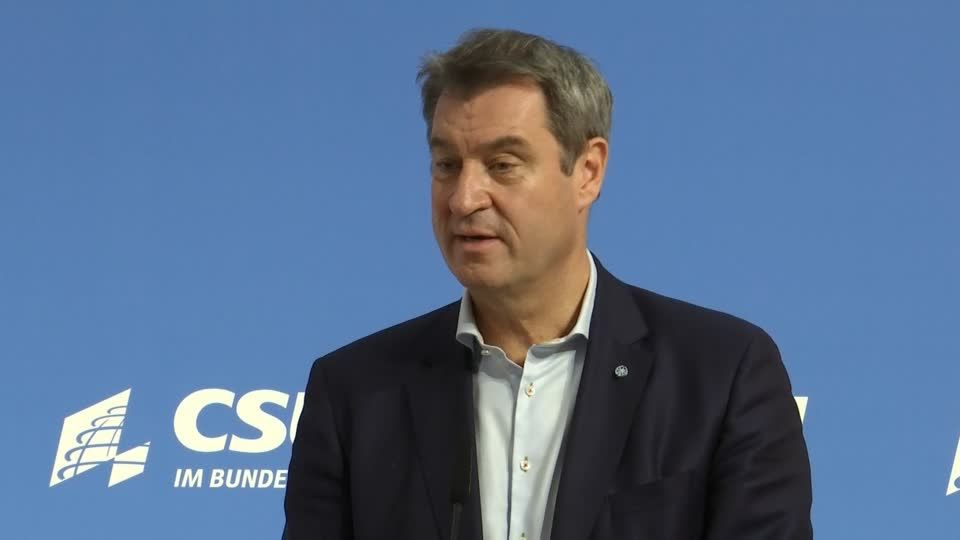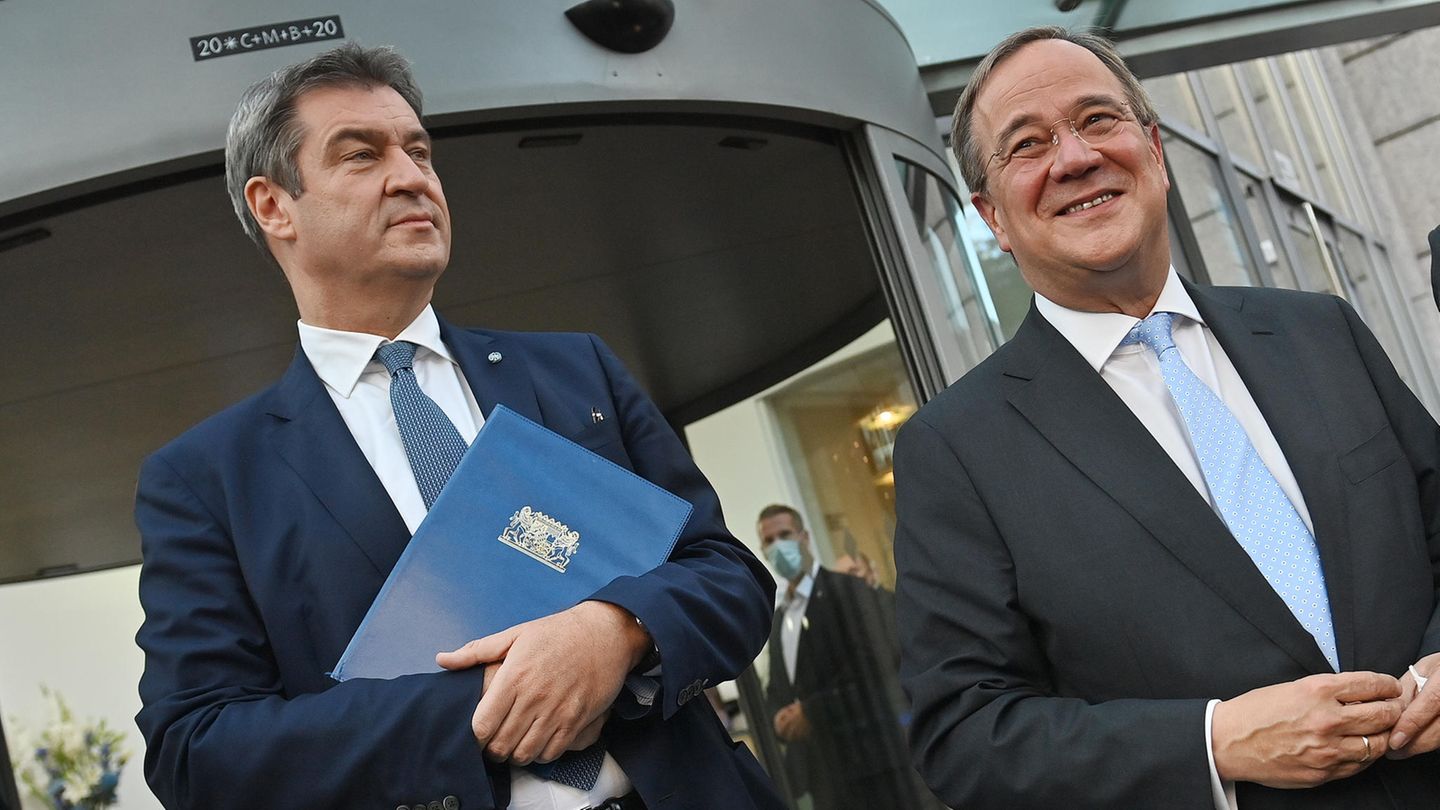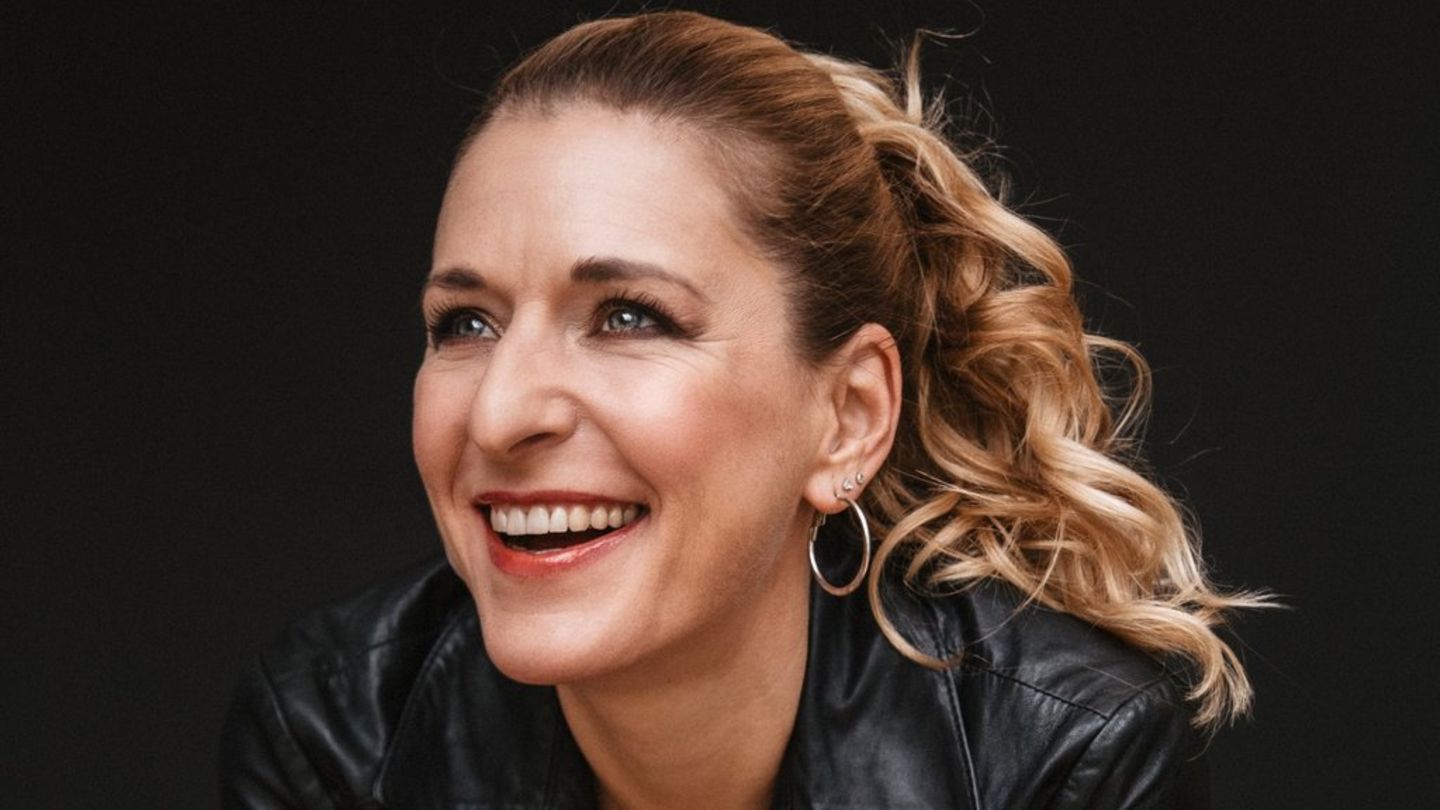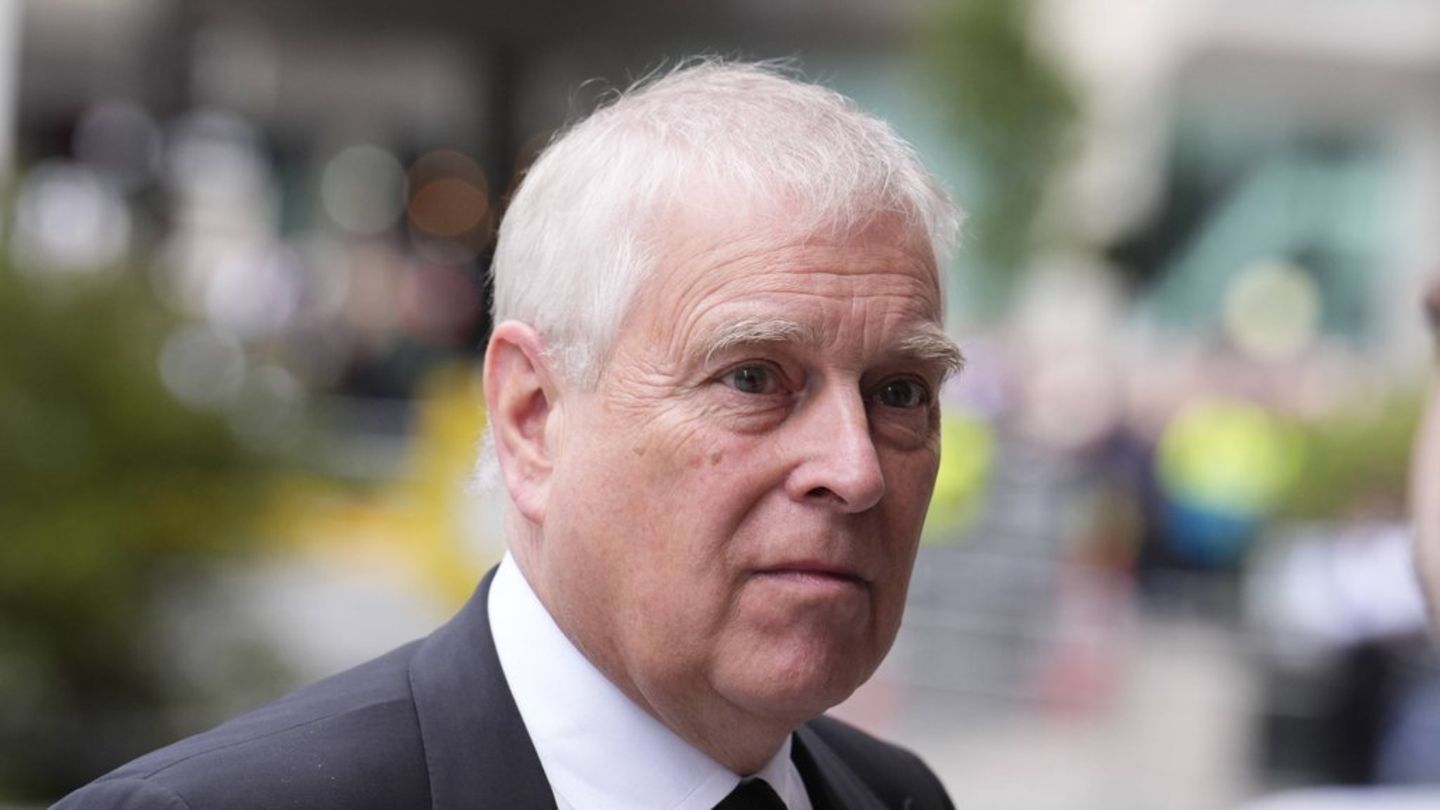The Greens are striving for a traffic light coalition with the SPD and FDP. But they have not committed themselves. Can the meeting with the leaders of the CDU and CSU change anything in terms of preference?
With a meeting of Union and The Greens will end their first series of exploratory talks on a new government this Tuesday (11 a.m.). The Greens are aiming for a traffic light coalition with the SPD and FDP after the federal election, but they are not ruling out an alliance with the Union and the FDP. Such a Jamaica coalition – named after the flag colors of Jamaica black, green, yellow – is the only chance for Union Chancellor candidate and CDU leader Armin Laschet to save the Union in the Chancellery after the historic election disaster of September 26th. Even the FDP has not yet committed itself, but tends towards the Union in terms of content.
The Union has invited the Greens – like the FDP on Sunday – to the consultations on the Euref campus in Berlin. Against the background of Laschet’s announcement that he was offering the Greens and FDP a “future coalition”, the choice of the conference venue should also be a signal to the two possible government partners. The campus advertises itself as a “future location” where 5,000 people research and work on the topics of energy, mobility and sustainability.
The substantive issues between the Union and the Greens
Finance and tax policy: There are a lot of cliffs here. The Greens want to burden high incomes and assets more heavily, which the Union rejects. The CDU and CSU, on the other hand, want to gradually abolish the solidarity surcharge for everyone. The Greens want a reform of the debt brake anchored in the Basic Law so that the state can invest more in the climate-friendly restructuring of the economy. There are many in the Union who oppose a “loosening” of the debt brake.
Energy and climate policy: The Greens want solar systems on roofs to be compulsory. From 2030 onwards, only emission-free cars are to be registered – that would be the end of the classic internal combustion engine, which is powered by fossil fuels such as gasoline and diesel. The Union rejects bans, relies on incentives. For example, she wants a subsidy program with interest-free loans for owners for more solar roofs. Controversial between Union and Greens are also concerned with whether the CO2 price in the transport and heating sectors should rise faster – as the Greens want it to be. “Greens and Union are light years apart when it comes to climate protection and I have no idea that this could be bridged, “said Greenpeace CEO Martin Kaiser to the editorial network Germany (RND / Tuesday).
In principle, the Union and the Greens agree that the expansion of green electricity from wind and Sun has to be accelerated in order to reduce emissions that are harmful to the climate. Planning processes should go faster. But there are many pitfalls along the way, including the conflict between climate protection and species protection. There is general agreement on reducing the electricity price.
Coal exit: So far, it is planned by 2038 at the latest. The Greens want an exit by 2030. In the CDU, a possible move forward is met with opposition, especially from the Prime Ministers in the East. In contrast, CSU boss Söder has repeatedly called for the coal phase-out to be brought forward significantly: to 2030.
traffic: Both the Union and the Greens want to expand rail and local public transport so that more people switch from their cars. The Greens want a general speed limit on motorways. This is one of the sticking points, even if the Greens parliamentary leader Anton Hofreiter recently signaled willingness to talk. The CSU in particular is strictly against it, and there are also major reservations in the CDU.
Foreign and Security Policy: The Greens are just as skeptical of the NATO goal of spending two percent of the gross domestic product on defense as they are of the continued deployment of US atomic bombs in Germany. Instead, they support the United Nations Nuclear Weapons Prohibition Treaty, which the Union believes is the wrong path to nuclear disarmament. The Greens have not yet taken a position on the question of whether the Bundeswehr should be equipped with combat drones. The Union wants to set this down in a coalition agreement.
Migration and Internal Security: Almost traditionally, there are major differences in these areas. For example, the CDU and CSU are skeptical of the definition of a certain number of migrants who could be accepted by Germany.
Black and green: who can with whom?
Since election day, the Greens have held back with attacks against the Union, and especially against Laschet, in order not to spoil the atmosphere of the talks. Only occasionally were doubts publicly expressed about the ability of the CDU and CSU to govern in view of the internal quarrels – for example by parliamentary group leader Katrin Göring-Eckardt, who is a member of the exploration team: “I don’t see at the moment that the Union could be considered fit for exploration, let alone for it governable, “she told the Funke media group a few days ago.
In the CDU it is said that Laschet has a good connection with the Greens leader Robert Habeck. Laschet also wanted to speak to Baerbock after the election – but nothing is known about the results. According to reports, Söder and Habeck can get along well, the CSU boss should also appreciate Baerbock very much. For criticism and gossip in the CSU election campaign, however, the Bundestag parliamentary group leader Toni Hofreiter, also from Bavaria, was often used.

There are also several members of the Union’s exploratory team who have government experience with the Greens. The Schleswig-Holstein Prime Minister Daniel knows Günther Habeck well: In the Jamaica coalition led by Günther since 2017, Habeck was Minister for the Energy Transition, Environment, Agriculture and Digitization until he became head of the Greens in 2018. Photos from summer 2020 show Günther and Habeck in a good mood on a hike together through Schleswig-Holstein.
Winfried Kretschmann and Thomas Strobl also work together – Strobl is the interior minister of the green-black Baden-Württemberg state government of Kretschmann. The Prime Minister of Saxony-Anhalt, Reiner Haseloff, ruled in his second term until September 2021 in a coalition with the SPD and Greens.
David William is a talented author who has made a name for himself in the world of writing. He is a professional author who writes on a wide range of topics, from general interest to opinion news. David is currently working as a writer at 24 hours worlds where he brings his unique perspective and in-depth research to his articles, making them both informative and engaging.




